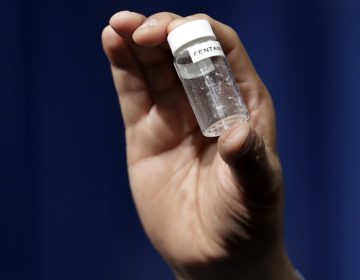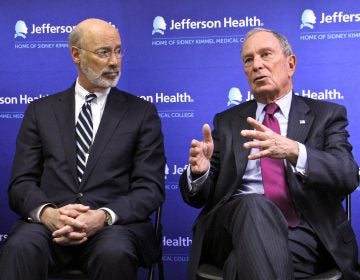Pennsylvania gets $55.9M to help people living with opioid addiction
It's the second year the state will receive the federal Health and Human Services grant.

Julia Chapman says she feels guilty every day that her son was born addicted to opioids. She said her mental illness contributed to her drug use, and she hopes to help her son learn from her experiences. (WITF)
The federal health and human services department is renewing a $55.9 million grant to Pennsylvania to address opioid addiction.
It’s the second year the Commonwealth received the grant.
Those funds have had a drastic effect on reducing overdose deaths and helping people with opioid use disorder to lead normal lives, said Department of Drug and Alcohol Programs Secretary Jen Smith.
Funds have been used for a wide range of services, such as providing medication-assisted treatment, hiring care workers and even helping people with things like housing, transportation and employment, factors that have been proven to help prevent people from relapsing, Smith said.
“Making a dent in the opioid crisis requires doing something above and beyond what we’ve been doing in the drug and alcohol field.”
Counties have some control over how money is spent, Smith said. That ensures the money goes where it is needed.
For example, In Blair County, which received $1.3 million in 2019, program administrator Judy Rosser said the money has gone to hiring certified recovery specialists who work in emergency rooms, making sure people who show up because of an addiction end up getting in treatment.
“And in the last two years we’ve been in the 40s with overdoses, and last year we had 25,” Rosser noted.
Other efforts include providing hiring case managers and providing people with medication assisted treatment and the opioid reversal drug naloxone, Rosser said.
WHYY is your source for fact-based, in-depth journalism and information. As a nonprofit organization, we rely on financial support from readers like you. Please give today.





